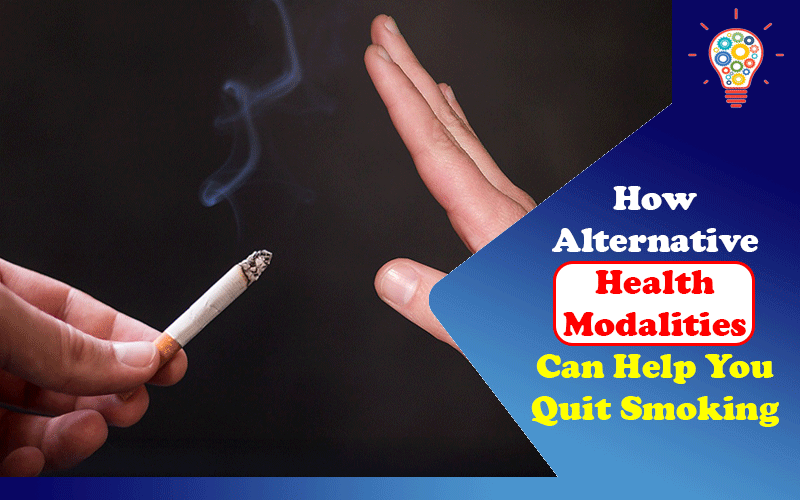Quitting smoking is one of the most difficult habits to break, but it’s also one of the most rewarding – especially when it comes to your health! The best thing you can do to help you successfully quit smoking is prepare. According to this Dentist In San Antonio, habitual smoking can cause plaque build-up, increasing the risk of gum disease. Your journey to quitting may not be a straight line, so you need to have things in place that will help you stay on track and overcome possible bumps along the road.
Alternative health modalities can offer a ton of benefits for those quitting smoking, so incorporating the help of your naturopathic doctor, acupuncturist or massage therapist into your smoking cessation plan can keep you on the path to success. Here are some ways these alternative health modalities can help you quit smoking.
Table of Contents
Planning for Success
Planning is a huge part of successfully quitting smoking. If you’re looking to quit you may want to look ahead and plan the following:
- Pick a date to quit and stick to it!
- Have alternatives ready for when the cravings hit – Things like healthy snacks, sugar-free lollipops, exercise you enjoy, etc.
- Tell your support system – Letting others know you’re quitting can help them support you, distract you from cravings, and know to avoid triggers.
- Be mindful – Being mindful and aware of the things you relate to smoking and the habits around smoking that you’ve formed can help you avoid them when quitting or find alternatives to switch to.
Planning ahead and becoming more aware of your smoking and the habits and routines you’ve formed around smoking can better prepare you to tackle the challenge of quitting.
Naturopathic Medicine
A Naturopathic Doctor is a great resource when quitting smoking as they take a holistic approach to your health, meaning they will be able to help support you both mentally and physically through your smoking cessation journey.
Naturopathic Doctors use a variety of modalities to treat patients who are quitting smoking, and many, like those at Gesund, offer a “smoking cessation” program which is built to support you through the most difficult stages of quitting smoking.
These modalities will often include acupuncture (more on that later), lifestyle assessments and changes, nutritional support, and supplements. These modalities are used to help ease cravings and other symptoms associated with quitting.
Massage
For many people that smoke, stress can be a huge trigger to smoke. It can be their main coping mechanism for dealing with stress so when that gets taken away when they quit, it can be difficult to avoid “relapsing” or falling back on that old habit as soon as stress arises. To combat this, preparing other, more healthy coping mechanisms for dealing with stress can be beneficial (if you need help with developing healthy coping mechanisms or identifying problematic ones, consider reaching out to a therapist).
Massage is a great way to decrease tension and stress in the body. Feeling the stress physically lifting can be a mindful experience that helps you better notice when stress is creeping up on you so you can nip it in the bud before it gets out of hand, especially now that you’re not masking those feelings of tension and discomfort with smoking.
If you deal with regular stress, anxiety or tension, scheduling regular massage appointments in the first few stages of quitting smoking may help you better manage your emotional and physical experiences of stress and avoid reaching the point of feeling like you “need a smoke,” to cope.
Acupuncture
Acupuncture has an entire protocol surrounding smoking cessation that is meant to help with cravings and other symptoms – the NADA protocol. This protocol is performed on the ear area which relates to nerves that stimulate the nervous symptoms and can help manage cravings.
Incorporating acupuncture into your smoking cessation plan is a great option as it’s easily accessible, affordable and highly effective. Practitioners will typically see patients early on in their journey to quitting smoking and in the early stages may recommend seeing them multiple times a week depending on the number and severity of cravings they experience. If you experience very intense and frequent cravings you can expect to see your acupuncturist more in the first few weeks of quitting.
Conclusion
Quitting smoking is one of the hardest things you may have to do, but the benefits far outweigh the discomfort that you’ll experience while you quit. Ensuring that you have a plan for quitting, and the support you need, both from friends, family and professionals can make all the difference in achieving your goals.
The most important part though, is to remember that quitting may not be a straight line and you may face bumps in your path but that shouldn’t discourage you from continuing on the journey to quit.
Read Also: 4 Natural Ways to Boost Your Immune System

